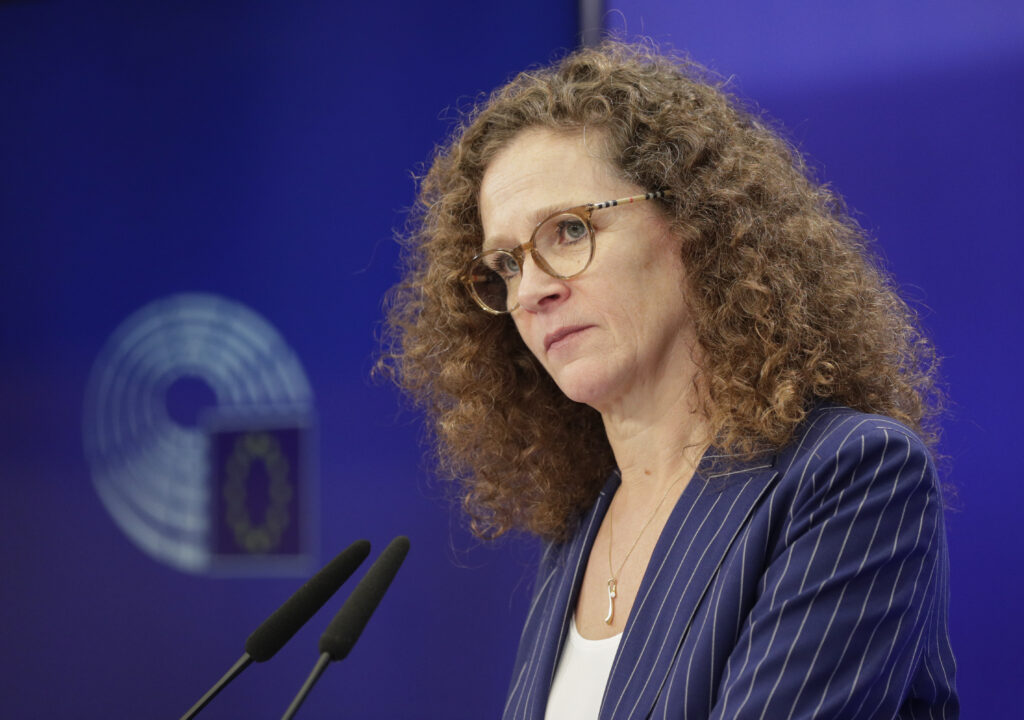Slovenian MEP Romana Tomc has sent a letter to MEP Sophie in ‘t Veld, in which she warns her about the war against the media and independent journalism that we have witnessed since the government of Robert Golob took office. She notes that media freedom in Slovenia is rapidly declining and recalls a recent incident in which Mojca Šetinc Pašek, a former “independent” journalist who is now an MP of the largest coalition party, the Freedom Movement (Gibanje Svoboda), allegedly threatened a member of the national media outlet Radio-Television Slovenia’s Programme Council with direct consequences if he did not sign the convocation of a meeting, at which the intention was to dismiss the Director-General of RTV Slovenia. Tomc called on her colleague to “prevent, in accordance with her powers, this kind of political interference and threats against the RTV Slovenia Programme Council.”
Sophie in t’ Veld is the Chair of the Democracy, Rule of Law and Fundamental Rights Monitoring Group, which is part of the Committee on Civil Liberties, Justice and Home Affairs (LIBE) of the European Parliament. The Slovenian public got to know her during the previous government’s term of office, when she visited Slovenia as the head of the European Parliament’s mission. The reason for the visit was to check the situation in the areas of the rule of law, media freedom and the fight against corruption. At the end of the mission, she found Slovenian institutions to be functioning well, but she was concerned about the level of public debate.
As MEP Tomc wrote on Facebook, the President of the RTV Slovenia’s Programme Council recently published some information about political pressures being exerted on one of the programme councillors. The pressure was allegedly exerted by Mojca Šetinc Pašek, a Freedom Movement party MP, who said that the councillor in question had only 30 minutes to sign a request to convene an extraordinary meeting of the institution’s Programme Council to dismiss the Director-General of RTV. Otherwise, she threatened to deprive him of his position as Chairman of the Management Board of the company Sava Turizem d.d. The majority of the company in question is state-owned, and the state consequently has the power to appoint and dismiss the managers.
“The President of the Programme Council, who publicly wrote about the incident, says he is prepared to testify in court on the basis of written evidence. If these allegations prove to be true, it would be yet another episode in a series of increasing political pressure exerted by the Slovenian government on the management of RTV Slovenia,” she wrote.
This is not the first attempt to subdue the national media outlet
In her letter, the MEP goes on to say that this was not the first attempt to subjugate the national media outlet, as the government adopted an amendment to the Radio-Television Slovenia Act, which many legal experts consider unconstitutional. In fact, the law was adopted under the emergency procedure, without any previous public debate. The emergency procedure is normally used in the event of war or natural disasters, the MEP explained, going on to say that the law in question would “behead the current management of RTV” and would, in all likelihood, terminate the contracts of all employees who had signed them under the current management. “The Prime Minister’s rhetoric, in this case, is extremely divisive, referring to opposition politicians and critical media as ‘evil’, ‘dark forces’, ‘factories of evil’, ‘factories of lies’, etc. He has previously also publicly complained about some journalists and articles that have been critical of him. Prominent members of the government even cite specific journalists they would like to see fired from RTV Slovenia after the new law is adopted,” the MEP writes.
She goes on to say that the latest attempt by the Prime Minister’s party to force a member of the RTV programme council to participate in the ousting of the current Director-General is in line with its past attempts to replace the leadership with its political allies.
“The MP, who is apparently not ashamed to use such wild tactics to establish political control over the national institution, is also the main sponsor of the controversial law on RTV Slovenia, which is aimed at beheading the current leadership of RTV Slovenia. She is also the chairwoman of a parliamentary commission that investigates private media outlets that are not linked to the current government and often criticise it,” he writes.
Tomc concludes that the war against the media and independent journalism in Slovenia is in full swing and that European institutions and legislators must not turn away from this development. For if the government has its way, “not only media freedom but also basic freedom of expression will be seriously threatened.”
Gal Kovač


